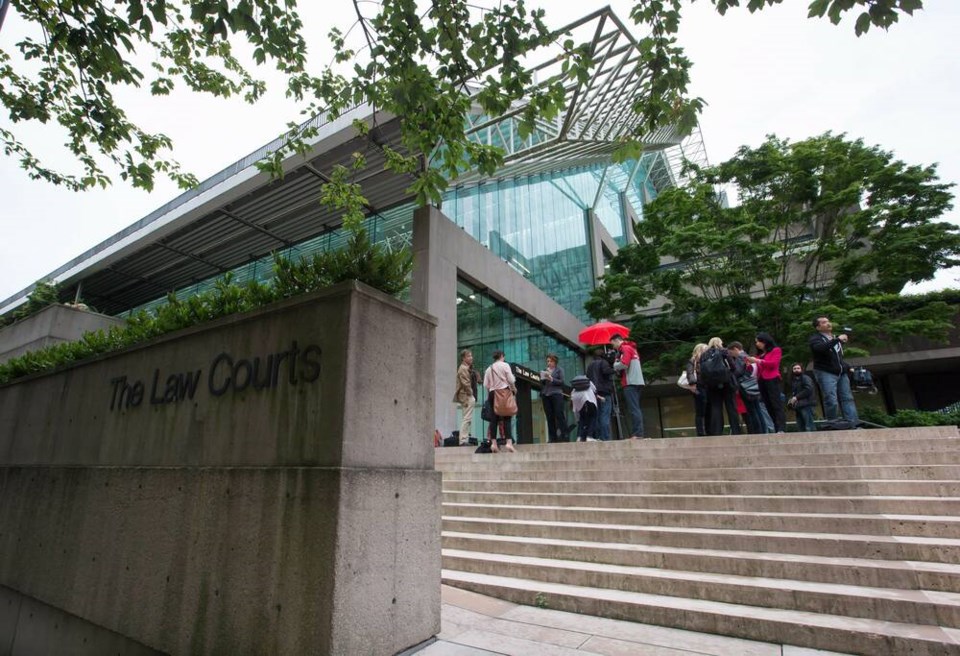VANCOUVER — An 88-year-old Chilliwack man who abruptly left his wife after 48 years in 2012 by leaving a goodbye note and moving to Roswell, New Mexico, has filed a claim for a share of millions in family assets.
In an interim judgment, the B.C. Supreme Court has ordered the wife, who is 81, to provide the husband $435,000 in staggered payments to help him pay the costs of pursuing the claim, noting it has a “reasonable prospect of success.”
The case includes the husband’s allegation that he signed a transfer of his shares in the couple’s business under duress during a meeting with their son.
The man lives on a $33,000 annual pension and meets the definition of being “economically disadvantaged,” the interim judgment states.
B.C.’s Family Law Act allows disadvantaged spouses to receive assistance “to help level the litigation playing field that is so often skewed when one spouse controls all or the majority of the wealth and assets,” the courts have said.
The claim by the husband, identified in the judgment only as H.H.P., against his wife, K.J.P., and son, H.R.P., and his son’s wife, T.M., as well as their companies, P.H. Ltd., R.D. Ltd. and 13# Co. Ltd., is scheduled to be heard in April.
According to the interim judgment, the man left his wife and home in 2012 without any advance notice, leaving a handwritten note that began: “You have been a good wife. It’s been me all along causing trouble. Maybe now that I have left, … I won’t be able to annoy anyone anymore.”
He said he was sorry for “all the times I got angry,” accepted he was the cause of all her heartache and said life should be more pleasant for her with him gone.
“I tried to leave the house as clean as possible,” he wrote. “I cleaned the room and washroom downstairs to make it look like it did months ago.”
He said she should sell his tools, that he didn’t want them or money from them, and he listed some details about a pool table and a trailer.
“I got you a hanging basket at Little Mountain,” he wrote. “The lady said the baskets with geraniums won’t be ready for two weeks.”
“All the best … and have many pleasant years.”
In a postscript, he wrote he had painted an area by the eating counter, installed two door stops and left the battery charger for the camera batteries.
“The sheet in the bedroom downstairs is washed. I put the umbrella and four chairs out on the deck. Garbage is ready for this Tuesday A.M.,” he wrote.
He signed the letter “The Loser.”
In 2010, the year he obtained U.S. citizenship, the man transferred his interest in the family home to his wife because of restrictions regarding non-U.S. assets, the judgment said.
But he had retained half ownership in the family business, P.H. Ltd., which had six hectares, or about six average city blocks, of property in the agricultural land reserve.
Years later, the son, a land developer, discovered he couldn’t sell the land because of his father’s part-ownership and hired someone to find him. In 2018, he showed up unannounced in Roswell, told his father he was dying of cancer and that there was interest in the property, the judgment said.
The man told his son to do what he wanted and that he had no plans to return to Canada, the judgment said. He agreed to sign away his rights to the company for $1 a share, or $53, and in a letter to his wife, he said: “I am gifting these shares to you.”
The son was able to rezone the farmland, assessed at around $73,400 when the man left the family, and sold it for $28 million in 2021. The net proceeds were distributed to the wife, the family companies and those owned by the son and his wife, either as gifts or low-income loans, the judgment said.
When the man learned of the sale, he hired a lawyer, sold his U.S. home for $147,000, and moved back to the Lower Mainland to temporarily stay with his daughter, the couple’s only other child, according to the judgment.
The man said he thought he was transferring just a third of the land and that the proceeds were going to benefit both his children.
The wife argued that if she were ordered to make an interim payment to the man, it would be harmful because the assets aren’t liquid and there would be negative tax implications to her to access them, and because there was little likelihood the man would pay her back if the claim was unsuccessful.
But the court said that given the man has “no financial ability” to pursue his claim, an order was needed to “level the playing field.”
It noted that given the lack of certainty about which assets the man was abandoning in his letter and the emotional impact the man said he felt after seeing his son after many years and the duress he said he felt put under to transfer the shares, the claim could reasonably succeed.
The court ordered the wife to pay him $225,000 within 30 days, another $100,000 by March 1, 2024, and $110,000 by April 15, 2024.



